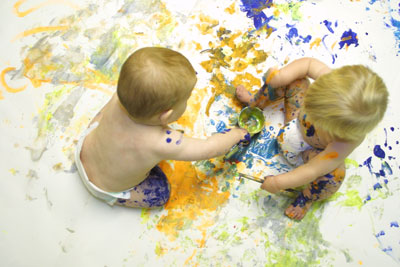Controversial Topic Time? I don't worry so much about posting things that develop discussion in this group, because we all seem to be adults and realize that it's okay to have differing opinions :). What are your thoughts about this article? About Unschooling? About Education in general? And I'm sure I don't need to say this, but if you disagree, do it respectfully without bashing, please!
http://www.theemotionmachine.com/unschooling-rekindling-the-desire-to-learn?utm_source=twitterfeed&utm_medium=twitter

This includes learning through play, games, household responsibilities, work experience, and social interaction.
Unschooling differs from traditional schooling because it asserts that standardized curriculum, uniform grading methods, and other forms of traditional schools are counterproductive toward maximizing a child’s education.
The philosophy behind unschooling includes several key ideas:
Children are natural learners.
Children are naturally curious and ready to learn. In many ways, schools may inhibit this curiosity by making children conform to a “one size fits all” method of teaching.
When students are forced to learn only one standardized curriculum, they have a lot less flexibility to pursue their individual interests. As a consequence, many students get bored easily in classroom environments. And even worse, they begin to develop aversive feelings toward education.
Unschooling believes that outside of the classroom learning – especially hands-on activities and community-based work – delivers a much more active, engaging, and valuable form of education.
People learn in different ways.
Unschooling also criticizes traditional teaching methods because different people learn in different ways. Because of this, schools often have a hard time adapting to different “learning styles” and maximizing time spent with students.
For example, some students may receive information better through videos, while others may prefer reading. A teacher with 20-25 kids is forced to either choose one or the other – or use both but spend less time with each one. In the end, students may be missing out on better ways of spending their time, especially compared to a more individual-based approach.
Learning how to learn is more important than any specific subject.
Unschooling doesn’t believe that there is an “essential body of knowledge” that needs to be taught in schools. For example, many people will say that subjects like math, science, and writing are of paramount importance in a child’s education.
However, proponents of unschooling assert that fostering the desire to learn is more important than any one subject. And once a child learns to love learning, they will be more motivated to expand their body of knowledge at their own free will.
Focus on social integration.
Traditional schooling is also criticized because many believe that it limits a child from living a rich social life. Many unschoolers find that age segregation, low children to adult ratios, a lack of contact with the community, and rigid school rules, ultimately contribute to an unhealthy social environment.
Instead, unschooling encourages social integration by allowing children to connect with a diverse range of different people in different age groups. Uschooling takes a “community-based” approach to learning, which involves children being active participators in their community throughout a range of different social contexts.
Unschoolers also believe that giving a child some freedom to choose who they associate with (or not associate with) is key toward cultivating a successful social life in the future.
The role of parents.
Parenting also plays an important role in unschooling. Unschoolers acknowledge that parents and adults often have more experience and knowledge than children. It is therefore expected that parents will “guide” the curriculum by introducing children to different subjects and activities.
Despite unschooling’s emphasis on individual interests and allowing children more choice over their curriculum, it is not a completely “hands off” approach to education.
Parents can and should play an active role in their child’s life, especially at a young age. As the child continues to grow, parents should strive to find a balance between guiding their child’s education, but also giving them more responsibility to independently pursue their own interests.
Viewing the world as an “open classroom.”
A big theme in unschooling is that the world is an “open classroom.” Children are taught to think of the life as one big learning experience, and parents help facilitate this process by providing their children with resources, advice, and ways to plan and implement goals.
The “open classroom” method allows children to develop their own natural curiosities toward life, even if these interests may differ greatly from one child to another.
Criticisms and practicalities of unschooling.
As good as unschooling may sound, it can sometimes be difficult to put into practice.
Many parents may find it too difficult or overwhelming to take so much responsibility over their child’s learning – especially since unschooling requires a very active and attentive role for parents. Other critics worry that many parents may not be able to provide a good enough education, or students won’t be able to effectively learn without a more controlled setting.
I wouldn’t recommend anyone to try unschooling without doing more research. I do think, however, that there are some valuable lessons here for any parent to learn. Even if you end up sending your kids to more traditional schooling, many of these things can be still be practiced during after school hours.


No comments:
Post a Comment